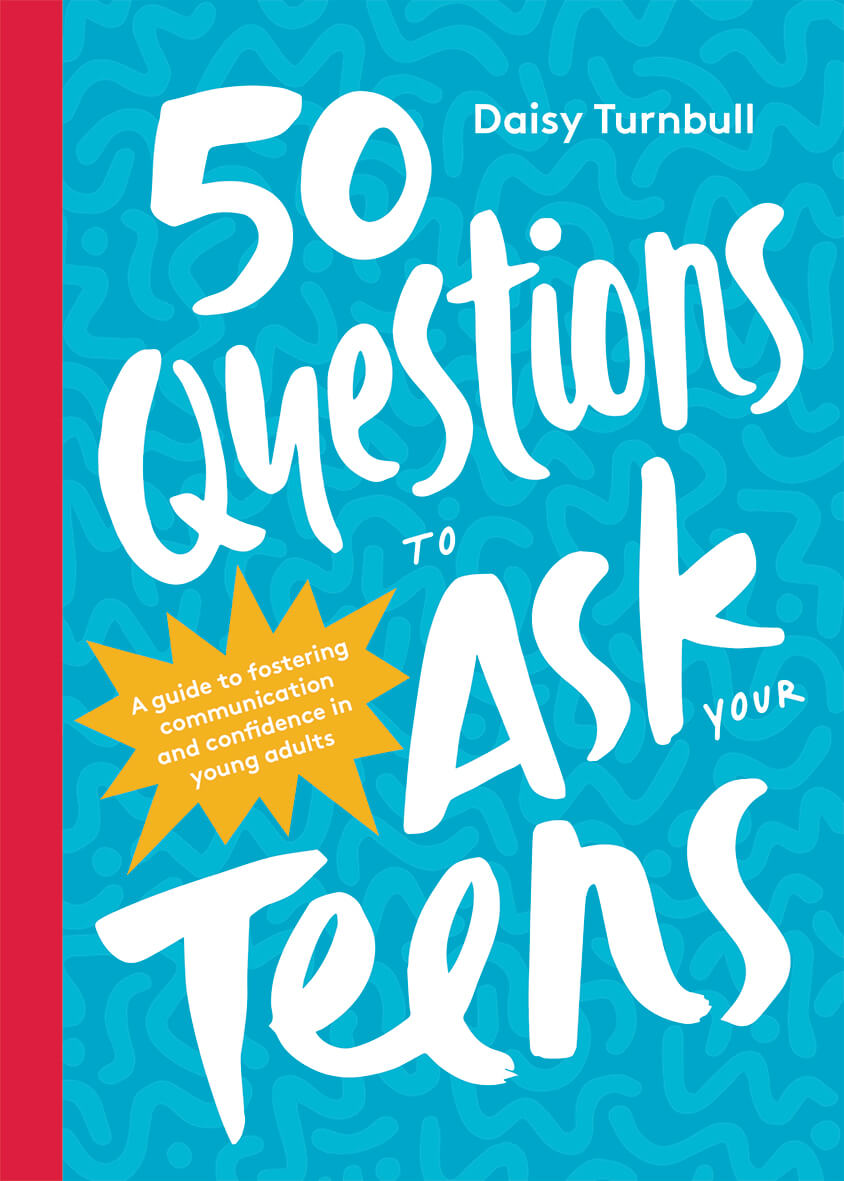
Author and educator Daisy Turnbull's new book is about helping teens become kind, fully functioning adults. In this extract, she explores the question, What can you help with?
What can you help with?
Together with any other adults you share the parenting responsibilities with, spend some time thinking about what your teen can do. Not in relation to sports and maths, but in relation to being an adult and a good housemate.
So, firstly start with a list of all the stuff that has to be done at home. These are things like laundry and dinner, but also the other stuff, like school sports admin, managing assignment due dates and all that fun stuff. Write it down.
Next, cross out what your teen is already doing. Then consider the things that aren’t crossed out. What can be added easily and slowly to the crossed-out list? Don’t start with taxes; that will set them on the path to a life of tax avoidance faster than you can say ‘pay me in cash’. Start small. If they’re taking out the rubbish, are they sorting recyclables? If they’re doing laundry, are they ironing too? Also, try not to genderise tasks. If you are setting your sons up to take out the garbage and your daughters to unpack the dishwasher, you are unintentionally buying into gender norms that will carry through your teen’s life. Try to be aware of them now.
Sharing with teens the 'mental load'
Some of these tasks might fall into what is known as ‘the mental load’. This has existed for many, many centuries. (Stone Age meme: ‘I am always moving the mammoth bones after dinner and Mr Ugh never appreciates it, he just assumes mammoth bones go out to the midden on their own.’) The mental load is everything that happens before you do a task or chore – all the organising and preparation needed before you can ‘just do it’. As Eve Rodsky describes in her book Fair Play, it’s the conception and the planning of something, as well as the execution. And it’s finishing the job properly (unlike Mr Ugh).
The mental load encompasses all the thinking and knowing and ordering of online groceries.
It is knowing how much milk is in the fridge, which friends have birthday parties coming up and where that bloody orange shirt is for Harmony Day. It’s knowing what needs to get done when, delegating if necessary, and making sure it gets done. The mental load is huge, and in heterosexual partnerships and families, it’s usually shouldered by women.
Both as a mother and as a single mother, I carry an enormous mental load. I can no longer blame anyone else for the fact I always have to take out the rubbish; it’s my job. In fact, a very wonderful and wise friend said about single parenthood, ‘There is a strength and vulnerability to it. It is all on you, which is scary, but it is all on you, and you just have to do it, and you can.’ And I can.
As your kids become teenagers, they should start to share that mental load. Make sure you are giving your teen tasks that include the whole nine yards – the conception and planning as well as the execution. Or give them the conception and planning while you handle the execution. For example, they can plan and pack for school camp, but you’ll make sure they get there on time. Aside from teaching your teen to be a good housemate, increased challenge and competency also brings psychological benefits, and helps to develop their autonomy

Becoming self-motivated and responsible
If you have read 50 Risks, you’ll know I go a bit fangirly for Richard Ryan and Edward Deci, who created self-determination theory. This theory condenses a lot of research into an easy to understand model that illustrates what makes us self-motivated and responsible.
The first key element of self-determination theory is autonomy – the trust and responsibility parents give their children. This basically means they’re doing stuff on their own.
The second is competency. This relates to the actual ability to do a task. Professor Angela Duckworth writes a lot about the need for teenagers to gain competency in order to develop grit. It is effectively a symbiotic relationship.
A lot of psychological research has been done on giving teenagers small challenges to increase their competency. When every task is that bit more difficult, you feel a sense of achievement for completing it. You can easily adapt this to apply to household tasks, increasing the difficulty and responsibility for your teen over time.
The third part of the self-determination model is relatedness. I cannot put this more plainly:
relationships are at the heart of everything. When you feel there is a connection to the people you are working with, or doing a task with, you perform better. We know students perform better with teachers with whom they have a strong relationship.
But there is another reason, beyond chores, to think about what your teenager can do. A strengths-based approach to parenting will make for a better parenting experience in general, and greater communication with your teen. Professor Lea Waters, author of The Strength Switch, argues that the strengths your teen may have in one arena (for example, organising their social life) can be channelled into an arena where their strengths may be hiding (such as organising their time to study). Discussing and understanding what your teen’s strengths are puts you in a far better position to help them develop skills than reminding them of what they can’t do.
It is totally okay to roll one’s eyes at doing chores. I roll my eyes at doing my taxes. But make them do it. Bin night, setting the table, cleaning up. Everyone in the family contributes, including the teens. And where in 50 Risks it was about getting kids doing these jobs so they learn how to do them, for the teens it is so that they can eventually do it all themselves, because the goal is to become a fully functioning adult.
Like this post? Please share using the buttons on this page.
sign up for our newsletter
About the book
This is an edited extract from 50 Questions to Ask Your Teens: A guide to fostering communication and confidence in young adults by Daisy Turnbull, published by Hardie Grant Books, RRP $24.99, available in stores nationally.


